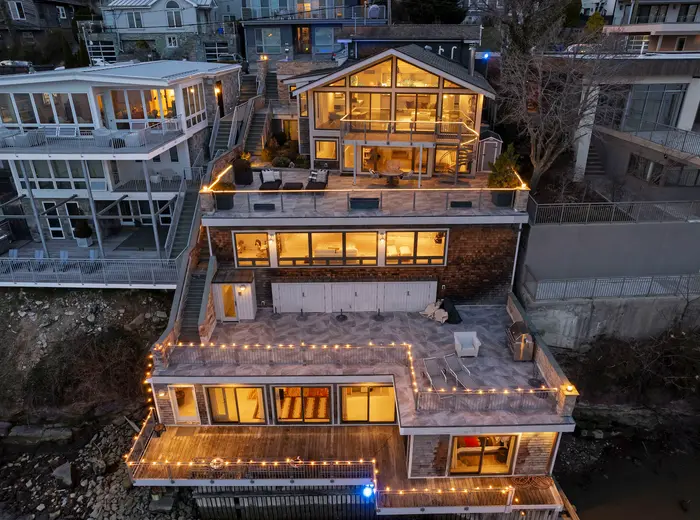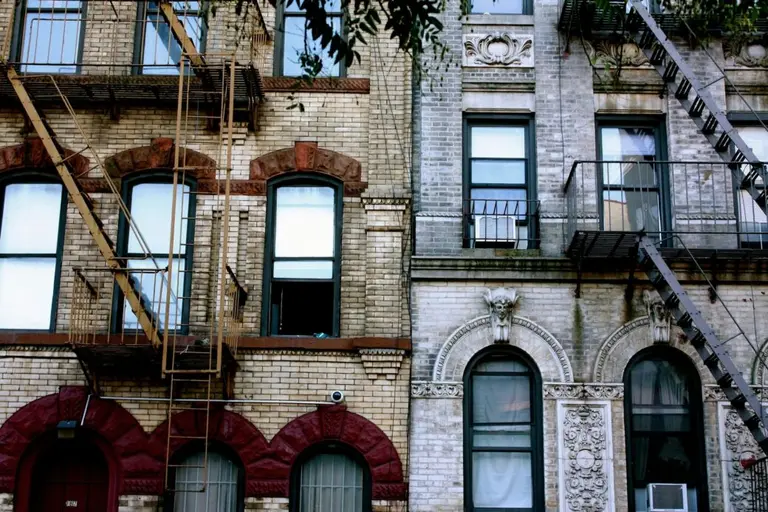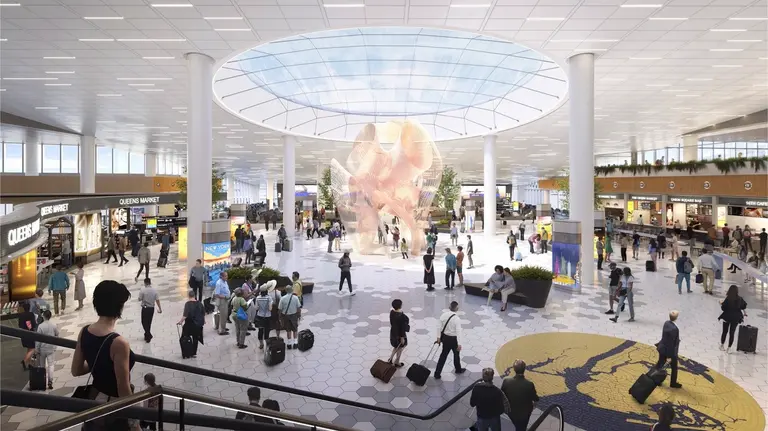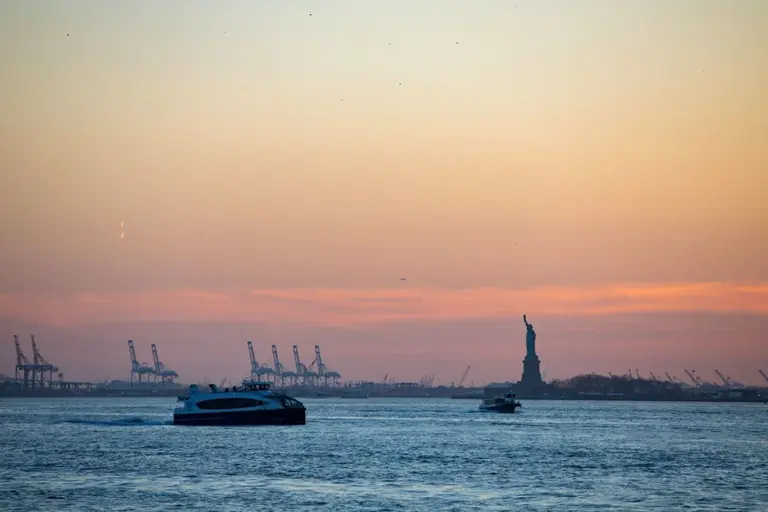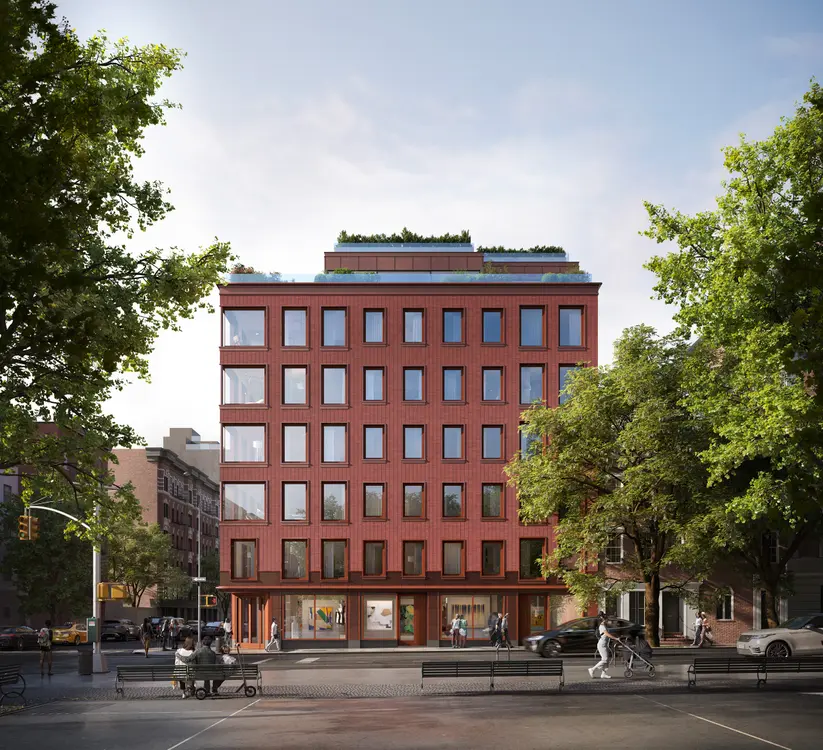MTA to ‘shrink’ capital budget after congestion pricing halted

Views of Kings Highway on the Culver F line. Photo courtesy of Marc A. Hermann / MTA on Flickr
The Metropolitan Transportation Authority will “shrink” and “reprioritize” its capital budget after Gov. Kathy Hochul paused the congestion pricing program last week that would have brought in $1 billion annually for infrastructure projects. On Monday, MTA Chief Executive Janno Lieber said the agency will reorganize the 2020-2024 Capital Program to prioritize basic repair work to ensure the “system doesn’t fall apart.” The MTA will also work on preserving federal grants that helped fund projects like extending the Second Avenue subway into Harlem and examine how the gap in the capital program will impact the operating budget.
“In New York, mass transit is like air and water, we need it to survive,” Lieber said on Monday during a press conference, the first public appearance by the MTA chief since Hochul’s announcement. “New York City and our 23-million-population region only works because we move millions of people.”
Lieber said the governor’s decision to pause the congestion pricing program would require the MTA to scale back the current capital program and possibly the next budget. According to Lieber, the agency cannot award contracts without dedicated funding. The MTA will prioritize state of good repair work, which includes projects that maintain the safety of the system to make sure it “doesn’t fall apart,” according to Lieber.
MTA staff will also look at how the operating budget will be impacted as the capital program is adjusted. “The priority is that we fight like hell to make sure we don’t have to reduce service,” Lieber said.
“That has been an area of incredible progress in the last couple of years, we have actually grown service on the subway lines, on bus lines, especially on commuter rail. And we don’t want to lose that so we’re going to focus on the financial situation and minimize those impacts.”
The agency will also examine federal funding and look to preserve the grants already awarded, including the federal government’s $3.4 billion commitment for the second phase of the Second Avenue subway project. “We’re going to do our best to prevent it from being at risk,” Lieber said.
Congestion pricing was set to begin on June 30 and was anticipated to bring in $1 billion annually for the MTA, in addition to less car traffic, cleaner air, and safer streets. The proceeds from the tolls accounted for about 50 percent of the remaining funds for the 2020-2024 Capital Program. Without funding, critical projects will be on hold and 23,000 jobs will be jeopardized.
“We are deeply concerned by today’s announcement by MTA CEO Janno Lieber to significantly scale back the MTA’s capital program following Governor Hochul’s rollback of congestion pricing,” the non-profit Tri-State Transportation Campaign said in a statement. “Cutting crucial resiliency projects (like the zero-emission bus program), state of good repair work, and accessibility improvements undermines the safety, reliability, and sustainability of our transit system, impacting millions of daily riders and our collective efforts to combat climate change.”
The group added: “We urge state leaders to prioritize long-term investments that ensure a resilient, efficient, and equitable transit system for all New Yorkers.”
Lieber said the MTA would continue to defend current lawsuits against the program and keep moving forward with the details of the program so it’s ready “if and when we get the green light” to start the program.
“I want to say to the folks who are frustrated that this reversal took place, I can relate,” Lieber said. “I am incredibly moved by how New Yorkers, transit advocates, but regular New Yorkers as well, have turned out in full force and raised their voices to show support for transit, and for the MTA. Loving the MTA is not a 365 job for New Yorkers, but in the last week we have felt it and I want to acknowledge it.”
On Monday, Hochul said she would find alternative ways to fund the MTA projects without congestion pricing. State lawmakers ended the legislative session last week without a solution for new funding.
“To assume that the only funding source had to be congestion pricing shows a lack of imagination about understanding other opportunities to fund these projects,” the governor told reporters at an unrelated press conference in the Bronx.
“There is no lack of imagination here because we will find a funding source,” Hochul said. “It doesn’t have to be a one-shot.”
As Gothamist reported, the original congestion pricing plan is still on the table and Hochul said she wants to “continue studying this, hearing from people.” She added: “There’s a big difference between a pause and an elimination. Elimination was an option. I said I’m committed to congestion pricing.”
In a video announcement released last week, Hochul said she was halting congestion pricing “indefinitely,” citing the current economic situation. However, Politico reported the governor was urged to pause the program by House minority leader Rep. Hakeem Jeffries, who worried the program would hurt Democrats in upcoming House races.
RELATED:










